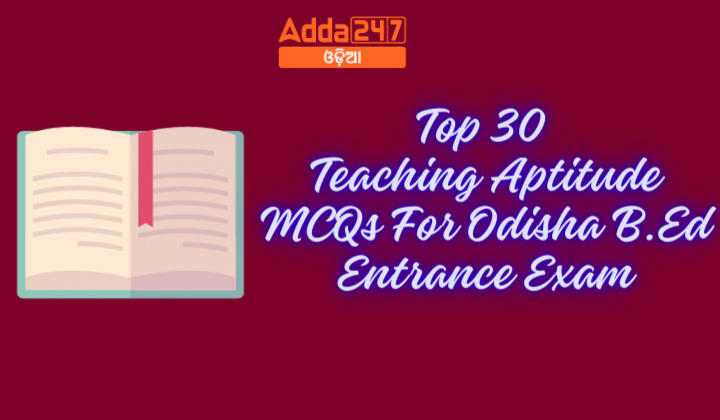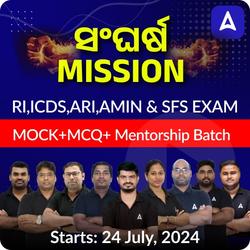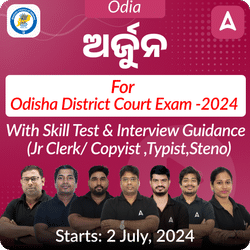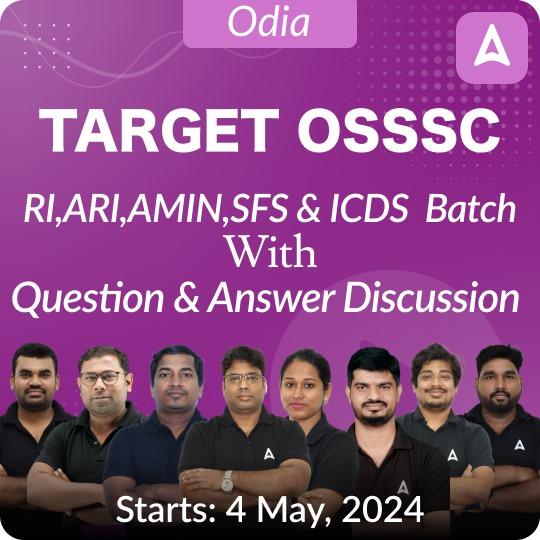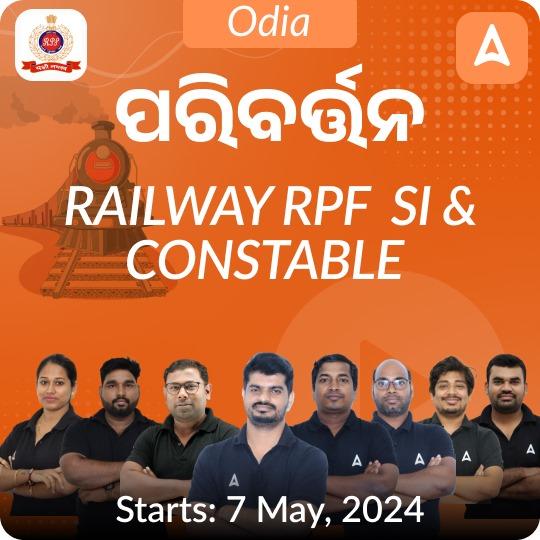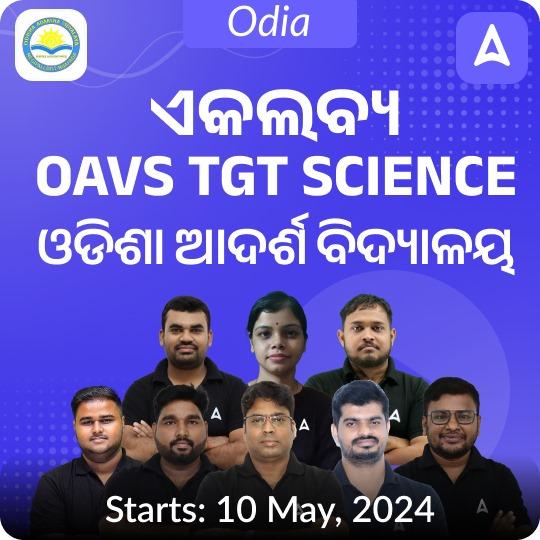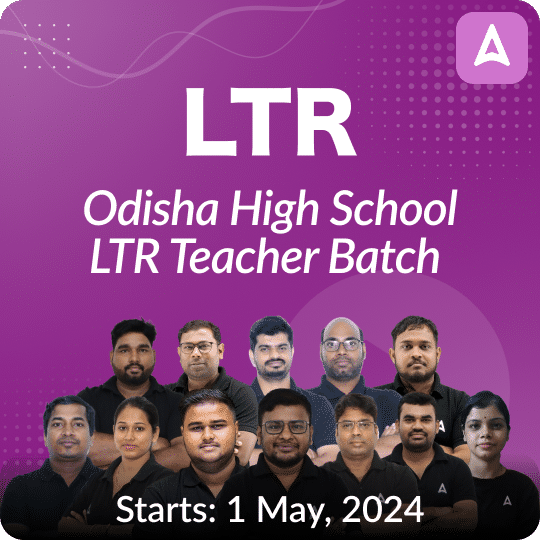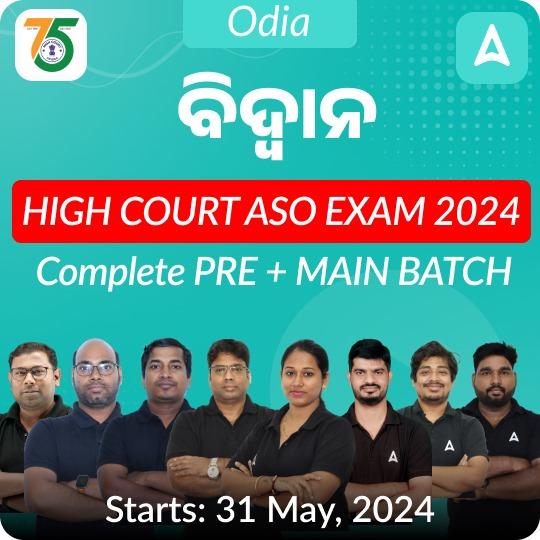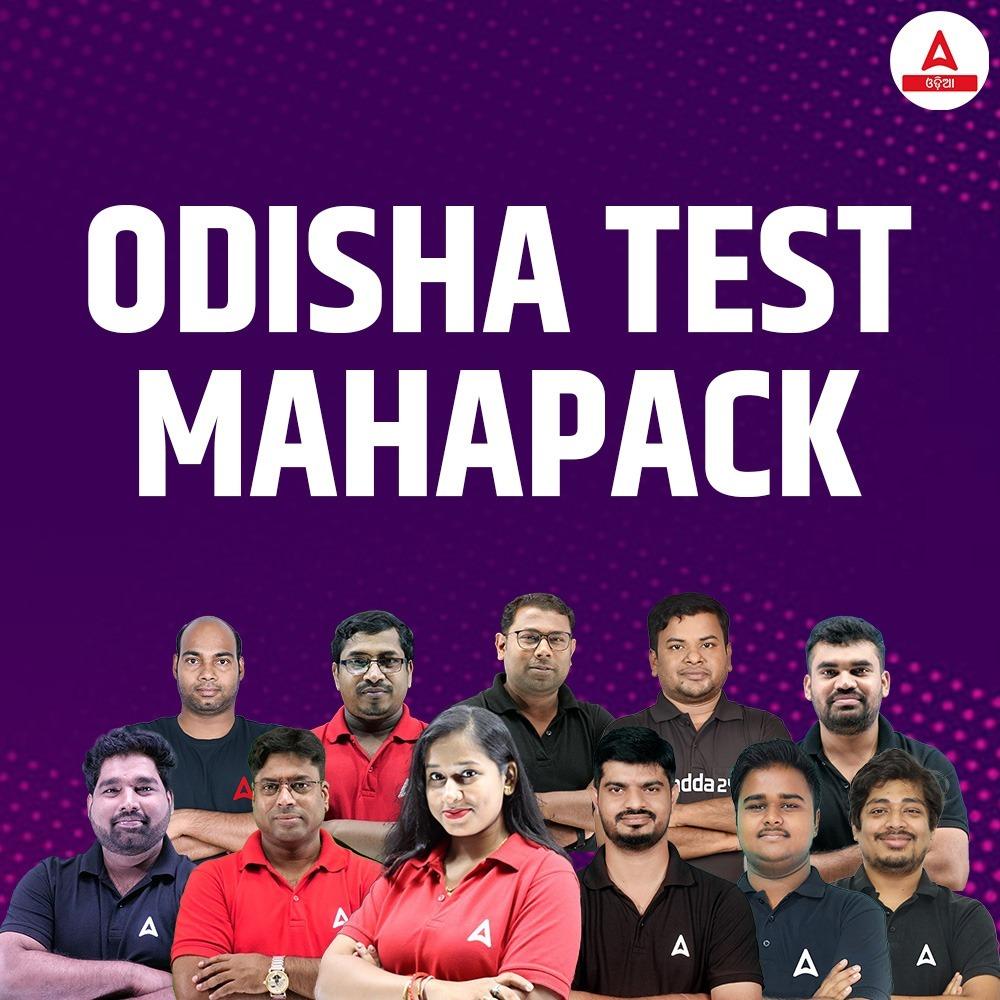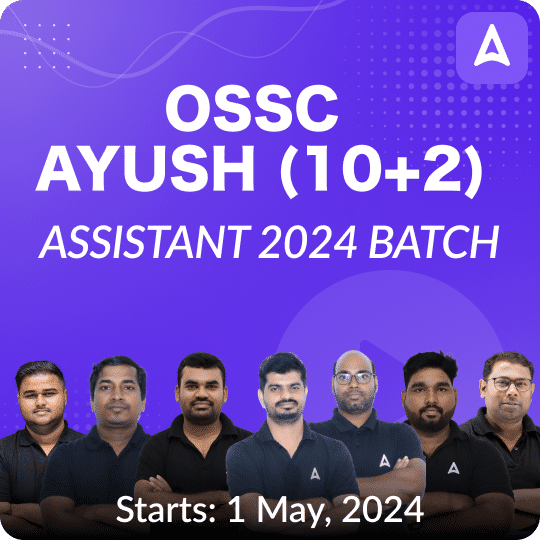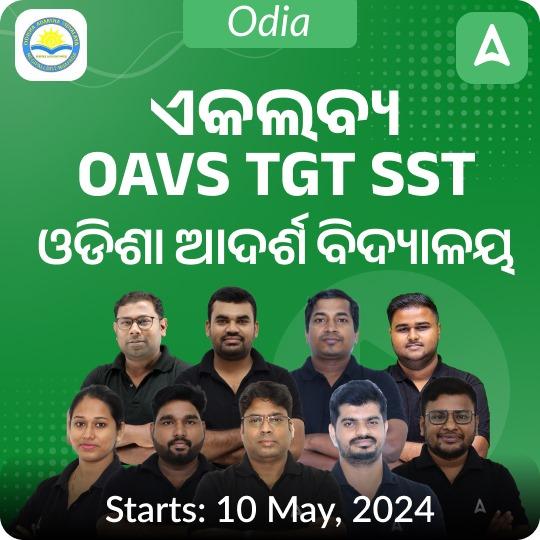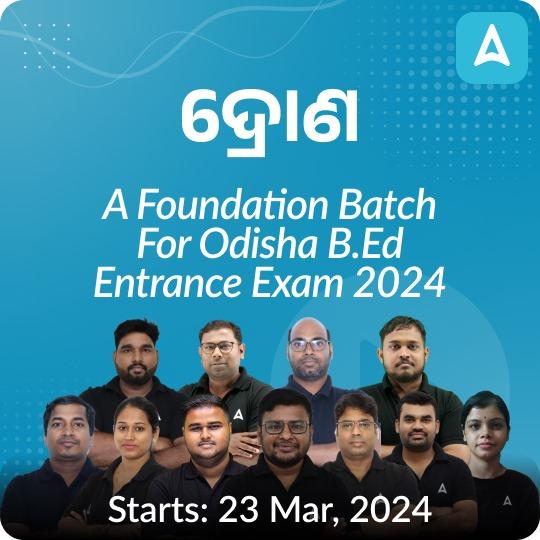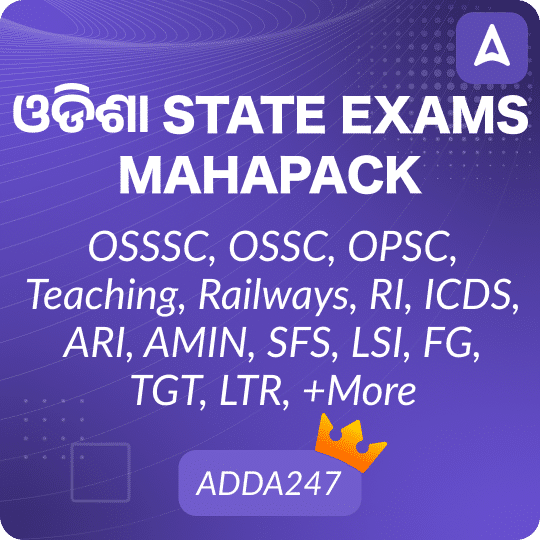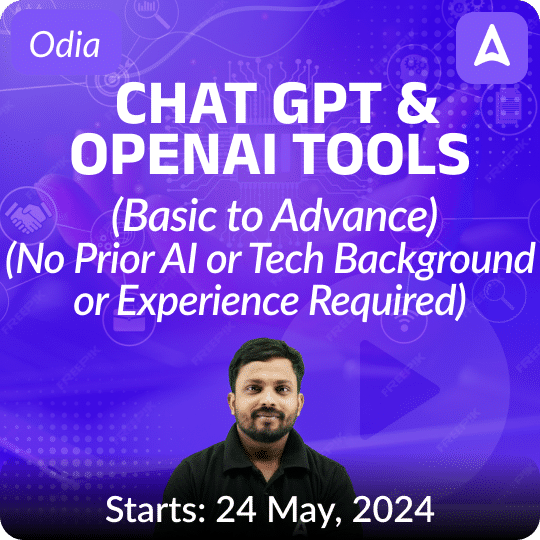Preparing for the Odisha B.Ed entrance exam requires a thorough understanding of teaching aptitude. Here are 30 multiple-choice questions (MCQs) that will help you assess and improve your teaching aptitude skills. These questions cover various aspects of teaching aptitude, including classroom management, educational psychology, instructional strategies, and assessment methods. Reviewing and understanding these concepts will help you prepare effectively for the Odisha B.Ed entrance exam.
Top 30 Teaching Aptitude MCQs For Odisha B.Ed Entrance Exam
- What is educational management?
(a) Strategic direction of an educational institution
(b) Daily operations management
(c) Financial planning only
(d) Teacher training
Answer: (a) Strategic direction of an educational institution - Which of the following is NOT a component of educational management?
(a) Human resources
(b) Finances
(c) Marketing strategies
(d) Equipment
Answer: (c) Marketing strategies - Educational management includes the formulation and execution of:
(a) Financial plans only
(b) Academic programs
(c) HR policies only
(d) Teaching techniques only
Answer: (b) Academic programs - What does educational management navigate in addition to operational challenges?
(a) Political landscapes
(b) Technological advancements only
(c) Environmental issues only
(d) Student behaviors
Answer: (a) Political landscapes - Why is educational management important?
(a) To reduce costs only
(b) To foster innovation and efficiency
(c) To limit growth opportunities
(d) To ignore relationship building
Answer: (b) To foster innovation and efficiency - Which function of educational management involves developing academic timetables?
(a) Planning
(b) Organizing
(c) Directing
(d) Evaluating
Answer: (a) Planning - What is the role of ‘directing’ in educational management?
(a) Setting goals only
(b) Motivating stakeholders and guiding activities
(c) Budget management only
(d) None of the above
Answer: (b) Motivating stakeholders and guiding activities - Which management function involves assessing the value of educational objectives?
(a) Organizing
(b) Motivating
(c) Decision making
(d) Evaluating
Answer: (d) Evaluating - What does ‘decision making’ involve in educational management?
(a) Setting goals only
(b) Assessing outcomes only
(c) Converting intentions into action plans
(d) None of the above
Answer: (c) Converting intentions into action plans - Which is NOT a component of resource optimization in educational management?
(a) Human resources
(b) Financial resources
(c) Technological resources only
(d) Instructional materials
Answer: (c) Technological resources only - What defines formal education institutions?
(a) Structured and organized
(b) Informal and spontaneous
(c) Flexible and unregulated
(d) Variable and uncertain
Ans: (a) Structured and organized - According to John Dewey, what is a disadvantage of formal education?
(a) Lack of discipline
(b) Overemphasis on practical skills
(c) Disconnect from real-world applications
(d) Overemphasis on informal learning
Ans: (c) Disconnect from real-world applications - Which are examples of informal educational agencies?
(a) Museums and libraries
(b) Schools and universities
(c) Professional organizations and youth clubs
(d) Family and playgrounds
Ans: (d) Family and playgrounds - What advantage does informal education offer according to John Dewey?
(a) Formal structure
(b) Responsibility and critical thinking
(c) Rote memorization
(d) Lack of discipline
Ans: (b) Responsibility and critical thinking - Which agency emphasizes active learning through dynamic interaction?
(a) Passive agencies
(b) Informal agencies
(c) Active agencies
(d) None of the above
Ans: (c) Active agencies - What characterizes passive agencies in education?
(a) One-way communication
(b) Dynamic engagement
(c) Active participation
(d) Lively interaction
Ans: (a) One-way communication - According to Aristotle, what role do educational agencies play?
(a) Restricting individuality
(b) Fostering social skills
(c) Limiting creativity
(d) Discouraging learning
Ans: (b) Fostering social skills - Which factor is crucial when choosing an education agency?
(a) Social media presence
(b) Cost and services offered
(c) Historical significance
(d) Geographic location
Ans: (b) Cost and services offered - What is a primary advantage of active learning in educational settings?
(a) Passive listening
(b) Teacher-centered approach
(c) Student engagement
(d) Rigid discipline
Ans: (c) Student engagement - Which educational agency is criticized for potentially hindering critical thinking?
(a) Informal agencies
(b) Passive agencies
(c) Active agencies
(d) All of the above
Ans: (b) Passive agencies - What does the Latin term ‘educare’ mean?
a) To nourish
b) To lead out (of ignorance)
c) To draw out
d) Act of training
Answer: a) To nourish - Which Greek term is sometimes used synonymously with ‘education’?
a) Philos
b) Ethos
c) Pedagogy
d) Logos
Answer: c) Pedagogy - According to Mahatma Gandhi, what does education signify?
a) Intellectual growth only
b) Physical and mental faculties
c) Holistic cultivation
d) Spiritual enlightenment
Answer: c) Holistic cultivation - Who emphasized education as empowering the mind to discover profound truths?
a) Mahatma Gandhi
b) Rabindranath Tagore
c) Zakir Husain
d) Swami Vivekananda
Answer: b) Rabindranath Tagore - What did Aristotle believe education fosters?
a) A balanced mind within a healthy body
b) Mastery of physical skills
c) Spiritual enlightenment
d) Political prowess
Answer: a) A balanced mind within a healthy body - Rousseau’s perspective on education emphasizes:
a) Academic excellence
b) Discipline and obedience
c) Natural development
d) Technological innovation
Answer: c) Natural development - Education facilitates both individual and ______ advancement.
a) Religious
b) Cultural
c) Political
d) Societal
Answer: d) Societal - What is central to education’s aim according to the article?
a) Intellectual superiority
b) Moral and character development
c) Physical fitness
d) Technological innovation
Answer: b) Moral and character development - According to the article, education promotes:
a) Vocational aims only
b) Cultural enrichment
c) Physical development only
d) Political agenda
Answer: b) Cultural enrichment - Education aims to prepare students for:
a) Financial success only
b) Democratic values and societal responsibilities
c) Personal achievement only
d) Technological advancement
Answer: b) Democratic values and societal responsibilities

